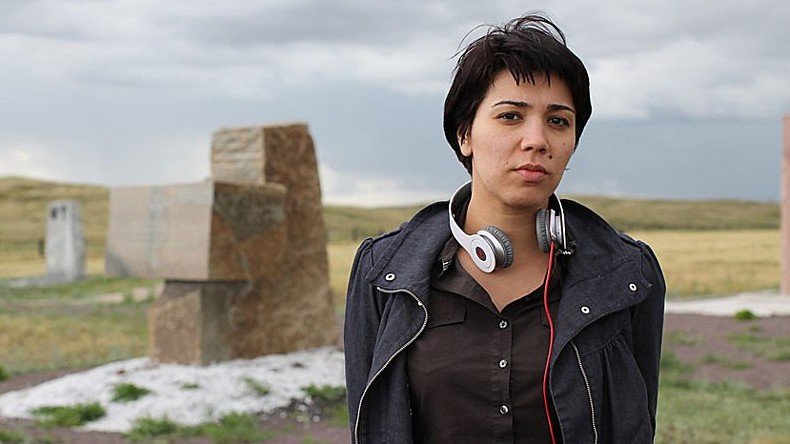
BBC: Azerbaijanis’ animosity and hatred for Armenians sometimes reaches unimaginable level
Currently, there are hard times for the beautiful Karabakh, as the Karabakh conflict broke out with a new force in April, journalist Rayhan Demytrie reports in a BBC program The Fifth Floor.
The journalist particularly speaks about her first visit to the Nagorno Karabakh Republic (NKR) in 2015. Then, she visited settlements close to the frontline and met a local woman, who told her that people there lived with constant fears of the war starting again.
A year later, in April 2016, Demytriewent back to the same villages and it was quite shocking for her to see that there was a grad rocket, which landed not far from the house of the woman she had met a year ago. The entire village was evacuated, and she watched with horror how people were leaving in a rush.
Demytrie notes that at first glance,it is impossible to imagine how deep the conflict is. Sometimes, the Azerbaijanis’ animosity and hatred for Armenians reaches an unimaginable level.
For example, an Azerbaijani soldier undergoing training in Hungary in 2004 axe-murdered a sleeping Armenian military officer.It was a cold-blooded murder. There was a trial, he was jailed; however, in a few years, the Azerbaijani authorities brought this person back promising that he would serve the remaining of his sentence at home. He was greeted in his country as a national hero, and his photograph is in every school in Azerbaijan. “It is absurd that this person is considered a hero, only because he axe-murdered a sleeping man,” Demytrie says in the interview with the BBC.
In 2004, the Armenian officer GurgenMargaryan took part in the three-month English courses of the NATO titled "Partnership for Peace" in Budapest. He was killed on 19 February, early in the morning. Murderer, Azerbaijani officer RamilSafarov struck in the face of sleeping Armenian officer with an ax for 16 times. Subsequently he was recognized as imputable by the Hungarian court and was sentenced to life imprisonment without right of pardon for 30 years. On August 31 it was stated that RamilSafarov will be extradited to his fatherland and was pardoned by the decree of Azerbaijani President IlhamAliyev.
In Azerbaijan, the pardoned murderer RamilSafarovwas met as a hero, he was given a department and was paid and officer salary for the 8 years he had spent in prison. In addition, Azerbaijan’s Defense Minister awarded Safarov with a special rank of mayor wishing him “further success.”
In connection with the extradition of Safarov to Azerbaijan, Armenian President SerzhSargsyan announced a termination of diplomatic relations with Hungary.
U.S. President Barack Obama, the U.S. Department of State, Foreign Ministries of Russia and France, Secretary General of the Council of Europe, Secretary General of the CSTO, NATO and international organizations of human rights condemned Safarov’s extradition, pardoning and glorification in Azerbaijan. On September 13, European Parliament adopted the resolution of condemnation too.
To the 10th anniversary of GurgenMargaryan’s murder, in the frameworks of "Ordinary Genocide" project, a video-footage has been prepared called "Azerbaijan: Racism has no borders." The footage is in English, Russian, and Hungarian. It concisely presents the history of a murder, which shocked the world, as well as the subsequent transfer and glorification of Safarov in Azerbaijan. It is significant that the authors chose a part of Shostakovich’s Symphony No. 7 (called Leningrad) known as invasion of fascists as the soundtrack.
The "Ordinary Genocide" project is being implemented by the Information and Public Relations Center under the RA President’s administration.
Newsfeed
Videos






























